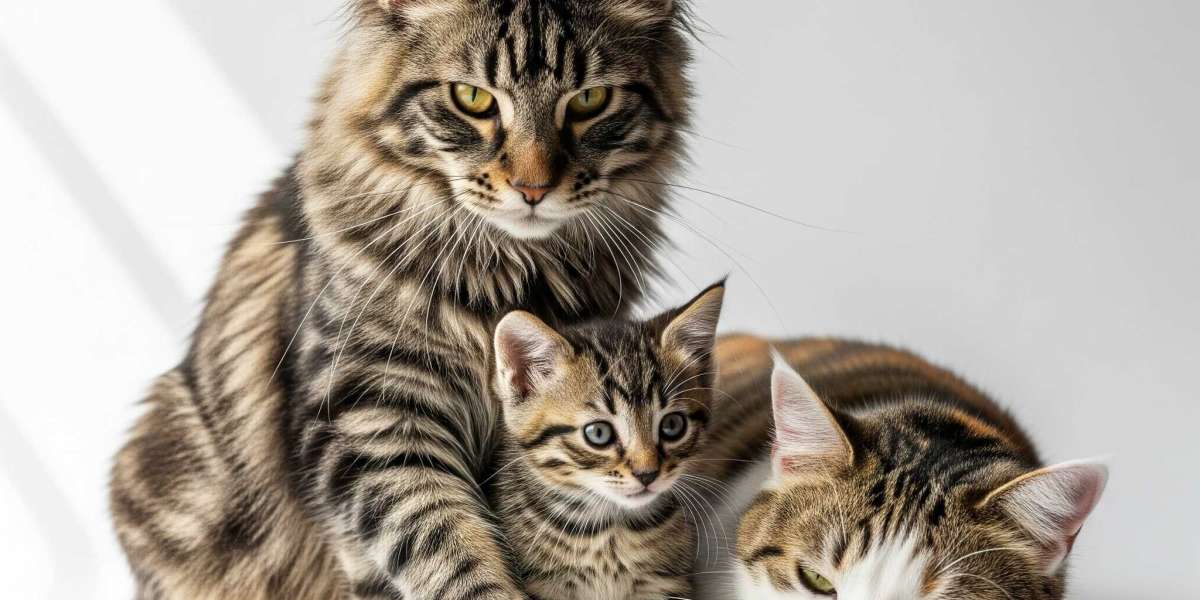Cats often seem like self-sufficient, independent creatures. They groom themselves, find the sunniest spot for a nap, and have a knack for letting you know exactly when it's dinner time. While this independence is part of their charm, providing exceptional care goes far beyond just filling their food bowl and cleaning the litter box. A truly happy and healthy cat requires attention to their physical, mental, and emotional needs.
Understanding these deeper needs helps you build a stronger bond with your feline friend and ensures they live a long, fulfilling life. This guide will walk you through essential aspects of cat care, from creating a stimulating environment to recognizing subtle signs of discomfort.
Creating a Stimulating Home Environment
A cat's natural instincts are to hunt, climb, and explore. A domestic setting can sometimes feel limiting, leading to boredom and stress. Your role is to enrich their environment to satisfy these innate drives.
The Importance of Vertical Space
In the wild, cats use high vantage points to survey their territory and spot both predators and prey. You can replicate this by providing vertical spaces in your home. Cat trees, wall-mounted shelves, and even clear window perches allow your cat to feel secure and in control. Having multiple high spots lets them observe the household comings and goings from a safe distance, which can significantly reduce anxiety.
Scratching: A Natural Necessity
Scratching is not a bad habit; it's an essential feline behavior. Cats scratch to mark their territory with scent glands in their paws, to stretch their bodies, and to maintain their claw health. To protect your furniture, offer a variety of appealing scratching surfaces. Provide both vertical posts (sisal rope is a favorite) and horizontal scratchers (like cardboard pads). Place them in prominent areas, such as near their favorite sleeping spots or entryways, to encourage use.
The Power of Play and Mental Engagement
A bored cat is often a stressed cat. Without adequate mental and physical stimulation, felines can develop behavioral issues like over-grooming, aggression, or destructive habits. Interactive play is crucial for their well-being.
Simulating the Hunt
Playtime for a cat is serious business it's practice for hunting. Engaging your cat with a wand toy that has feathers or ribbons allows them to stalk, chase, and pounce. This mimics the natural hunting sequence and provides an excellent physical and mental workout. Aim for at least two 15-minute play sessions each day. To make it more rewarding, let them "catch" their prey at the end of the session and give them a small treat.
Solutions for When You're Away
You can't always be there to dangle a feather wand. This is where providing a variety of engaging items becomes important. Puzzle feeders, which require your cat to solve a simple problem to get a treat, are fantastic for mental stimulation. You can also rotate a selection of solo-play items. When looking for cat toys for bored cats, consider things like crinkle balls, battery-operated chasers, and catnip-filled mice. Swapping them out every few days keeps things novel and prevents your cat from losing interest.
Nutrition and Hydration: The Foundation of Health
What you feed your cat has a direct impact on their energy levels, coat health, and overall longevity. Choosing the right food is one of the most significant decisions you will make as a pet owner.
Understanding Feline Dietary Needs
Cats are obligate carnivores, meaning their diet must consist of nutrients found only in animal products. High-quality cat food will list a specific protein source, like chicken or fish, as the first ingredient. Whether you choose wet or dry food often comes down to your cat's preference and health needs. Wet food has a higher moisture content, which is great for hydration, while dry food can be beneficial for dental health. Many owners find success with a combination of both. Always consult your veterinarian for recommendations tailored to your cat's age, weight, and health status.
Encouraging Proper Hydration
Many domestic cats don't drink enough water, which can lead to urinary tract issues. Since cats evolved from desert animals, their thirst drive is naturally low. To encourage drinking, place multiple water bowls throughout the house, away from their food and litter box. Many cats are also attracted to running water, so a cat water fountain can be an excellent investment in their health.
Understanding Your Cat's Health and Behavior
Cats are masters at hiding pain and illness. This instinct helped their wild ancestors avoid showing weakness to predators. As a cat owner, you must become a keen observer to spot subtle changes that might indicate a problem.
Routine Veterinary Care
Annual check-ups with a veterinarian are non-negotiable. These visits are vital for preventative care, including vaccinations, parasite control, and dental examinations. As your cat ages, your vet may recommend more frequent visits to screen for common age-related conditions like kidney disease or arthritis.
Decoding Body Language
Learning to read your cat's body language is key to understanding their emotional state. A slow blink is a sign of trust and affection, often called a "cat kiss." A tail held high with a slight quiver at the tip usually indicates happiness and excitement. Conversely, a flattened ear position, a twitching tail, or hiding can signal fear, irritation, or pain. Paying attention to these cues helps you respond appropriately to their needs.
Final Thoughts on Feline Friendship
Caring for a cat is a rewarding journey filled with purrs, headbutts, and quiet companionship. By going beyond the basics of food and shelter, you can create a life for your cat that is rich, stimulating, and secure. Providing vertical spaces, engaging in daily play, offering proper nutrition, and staying attuned to their health will ensure your feline companion doesn't just survive but truly thrives.








